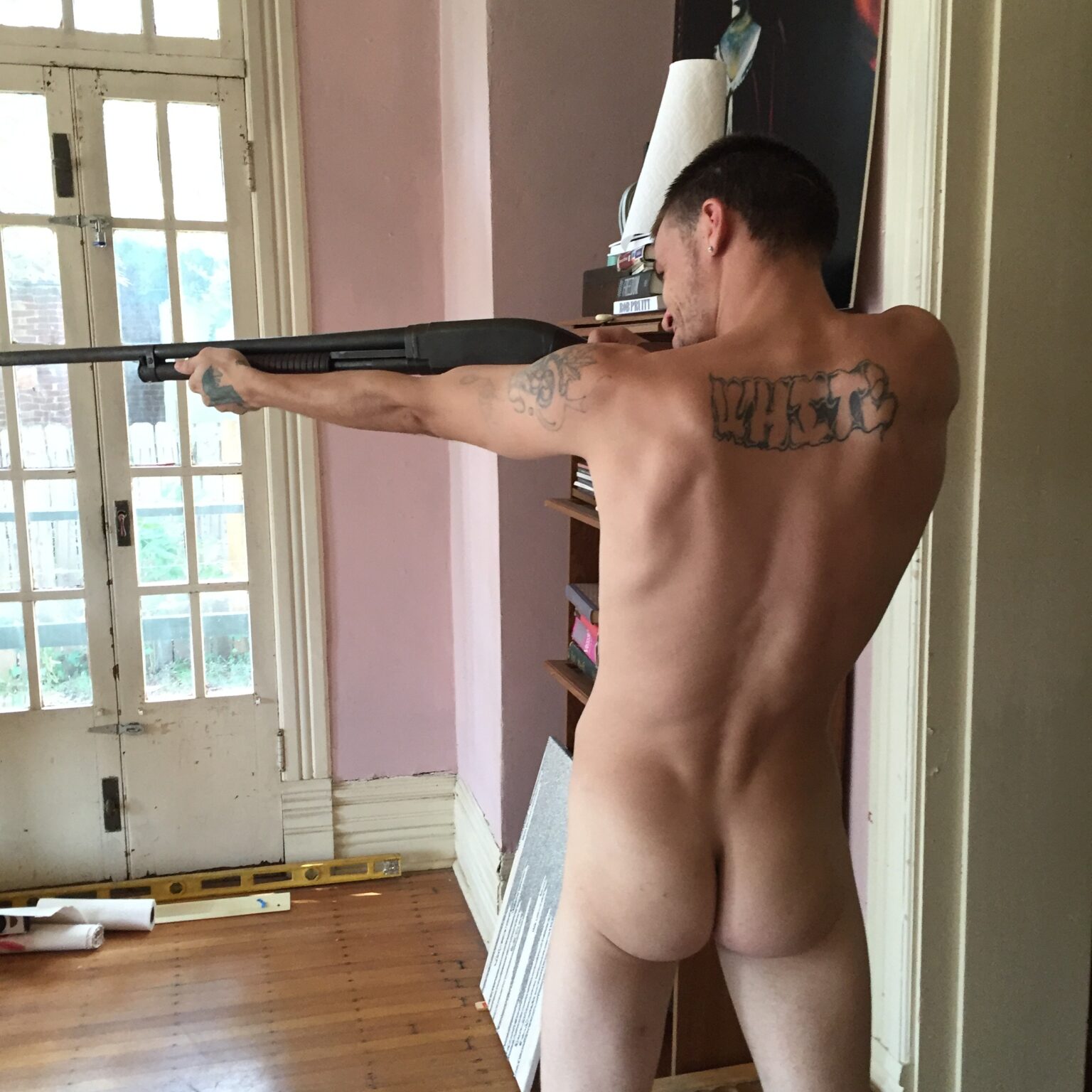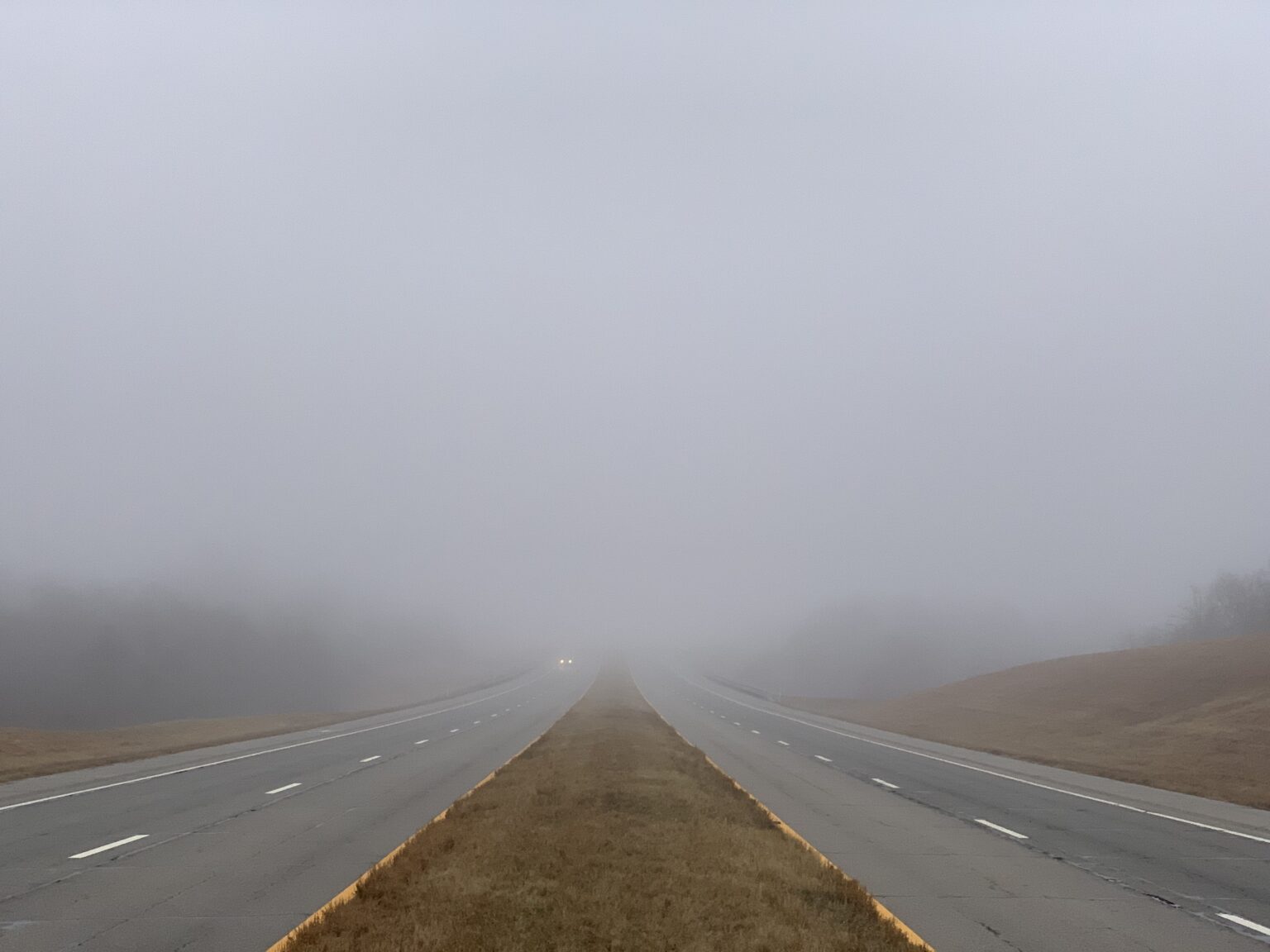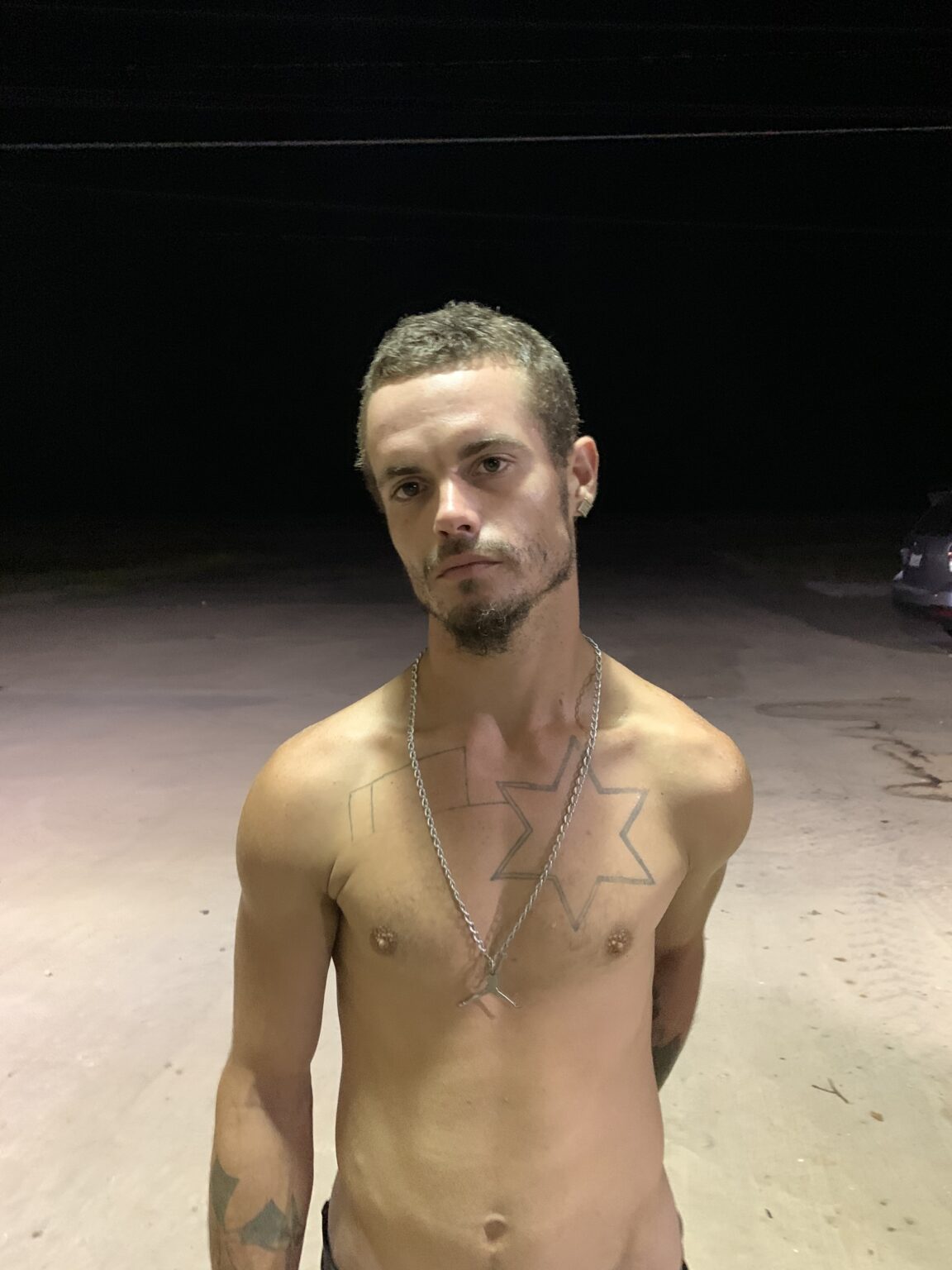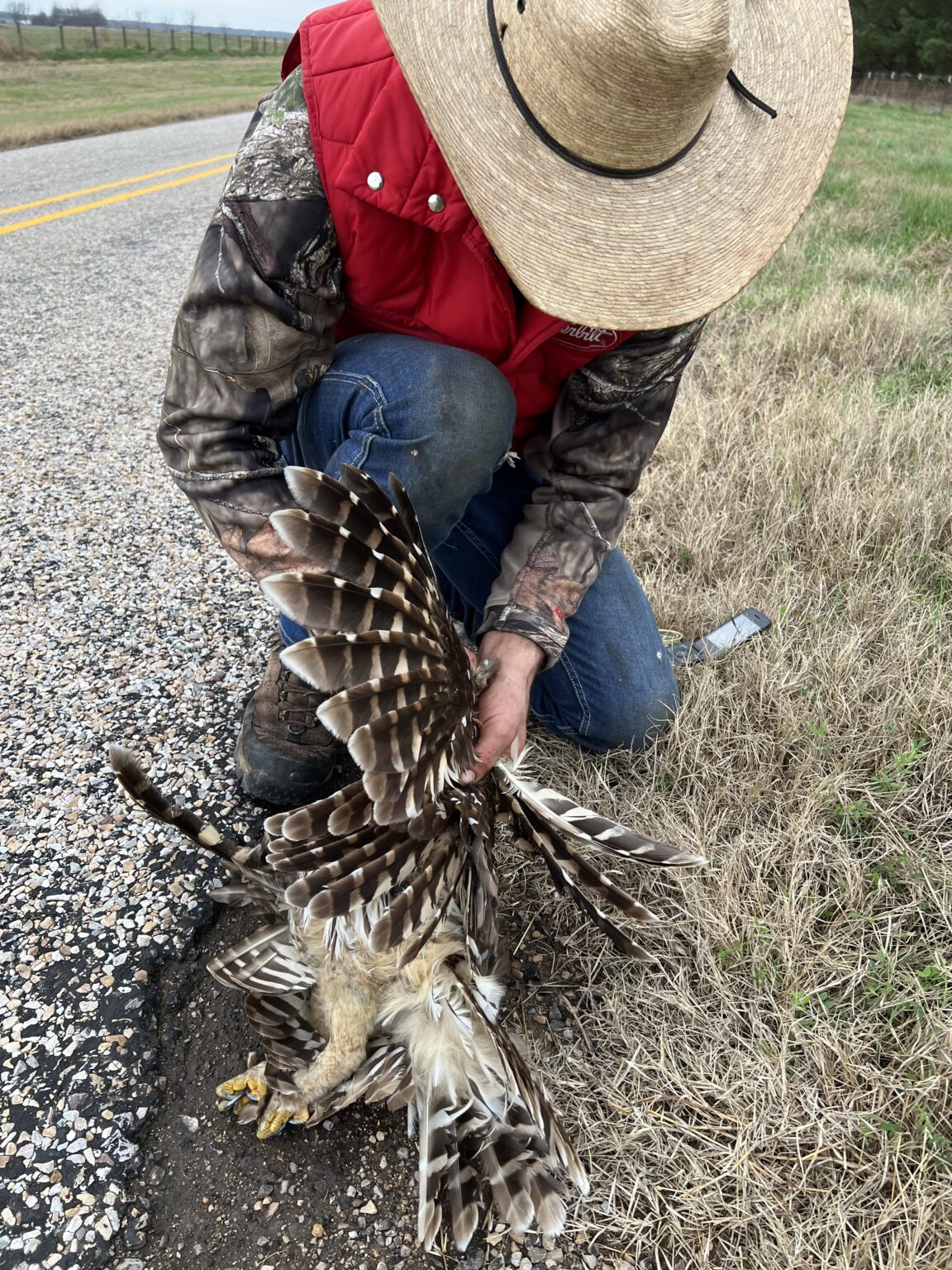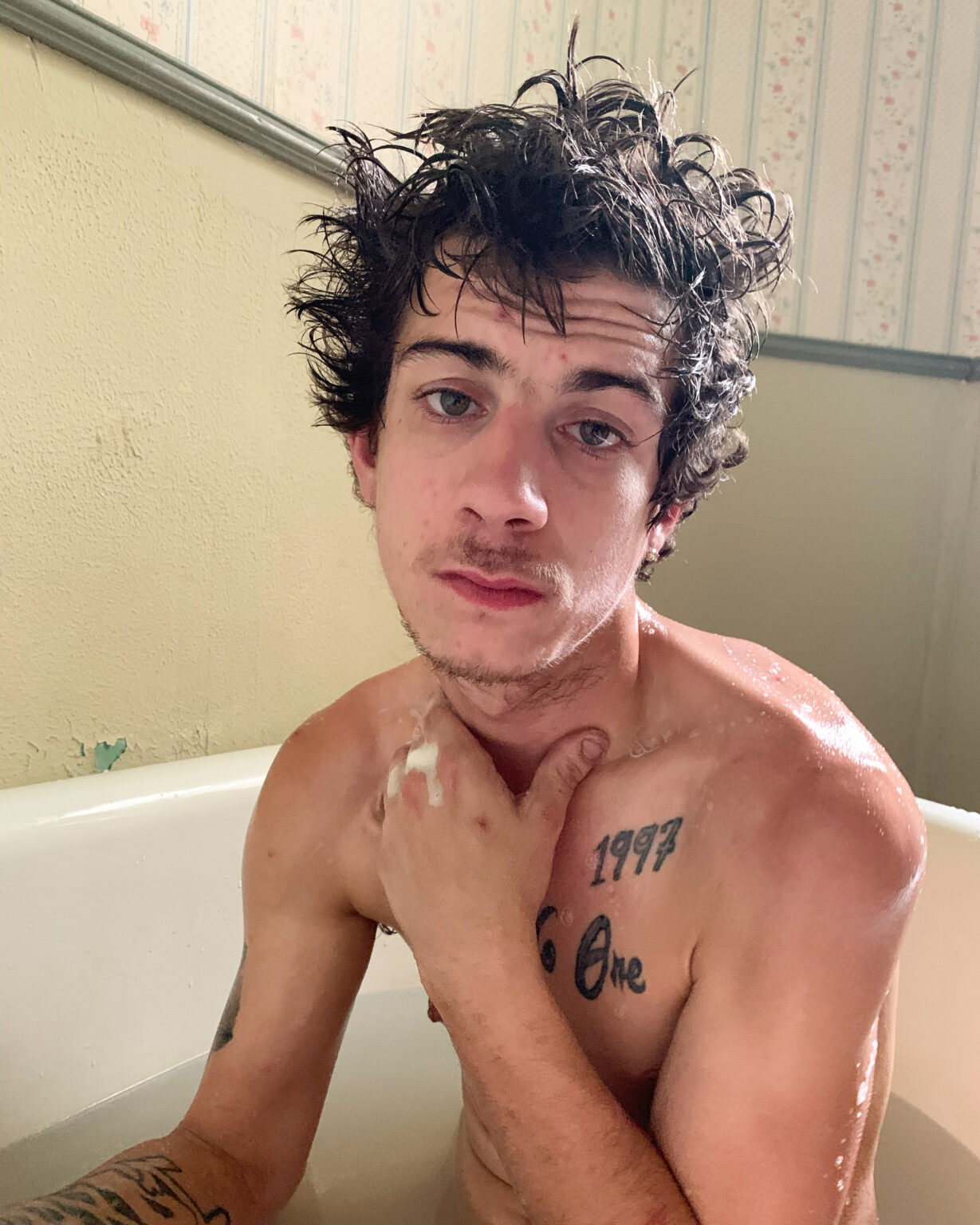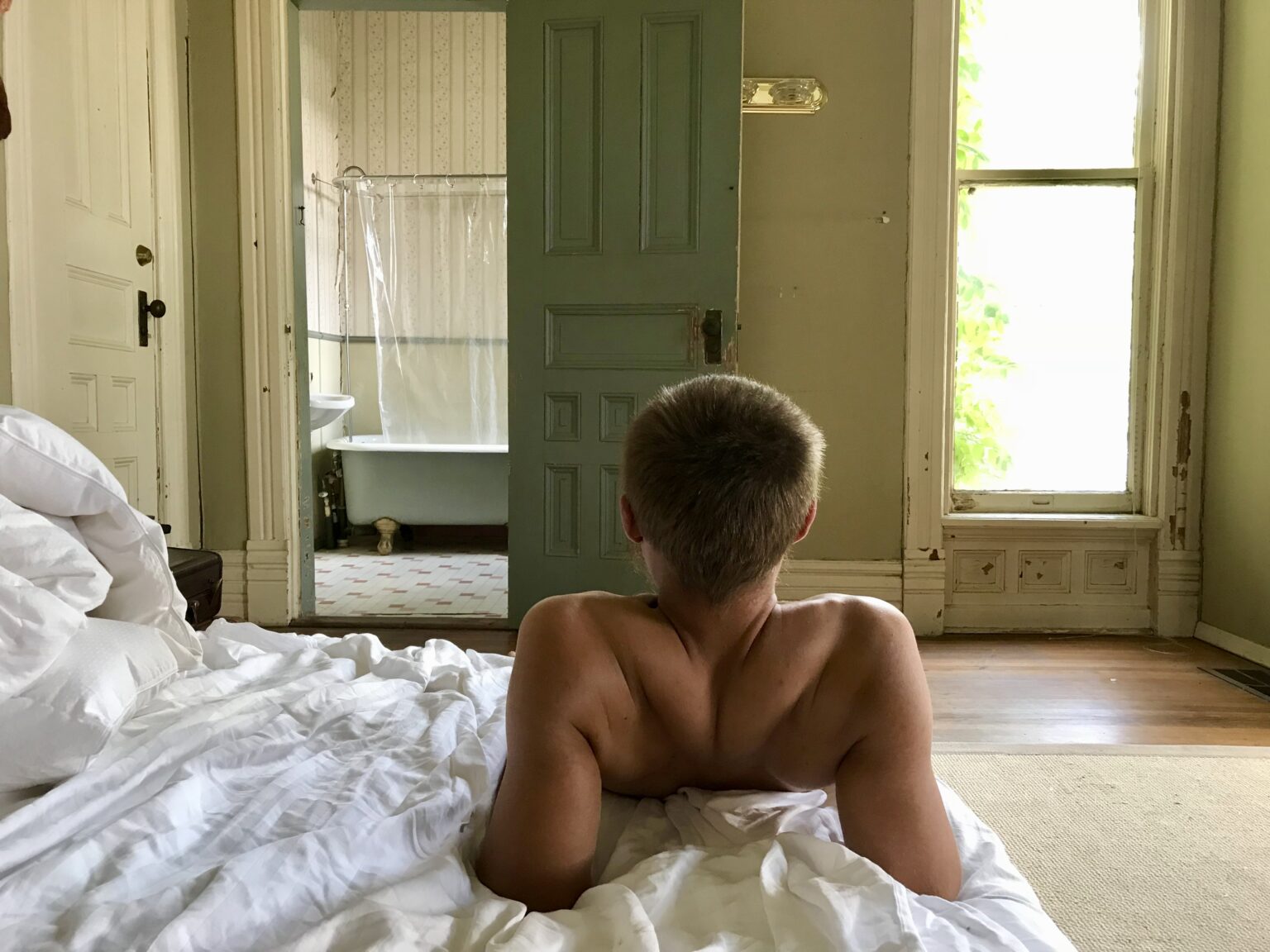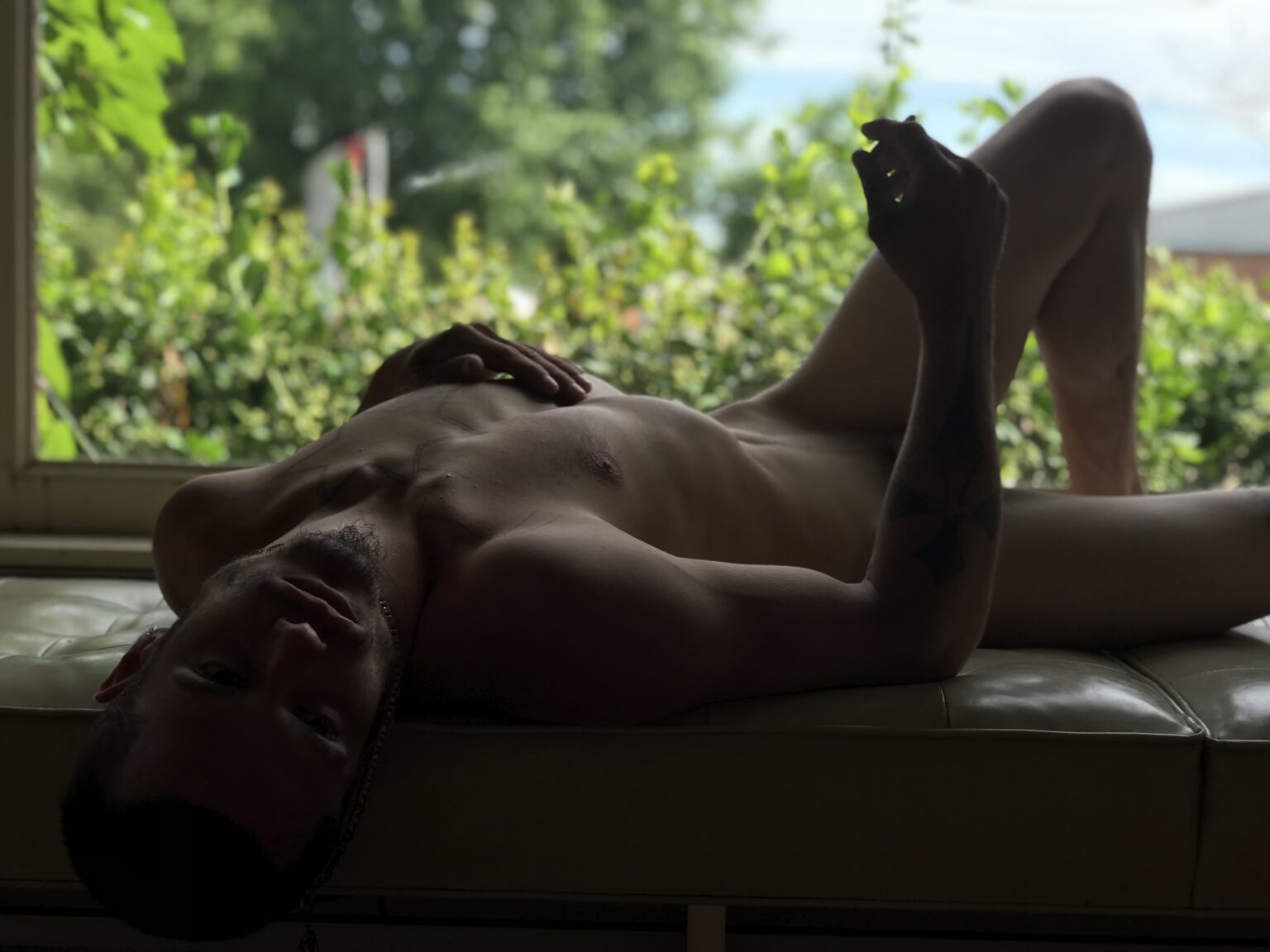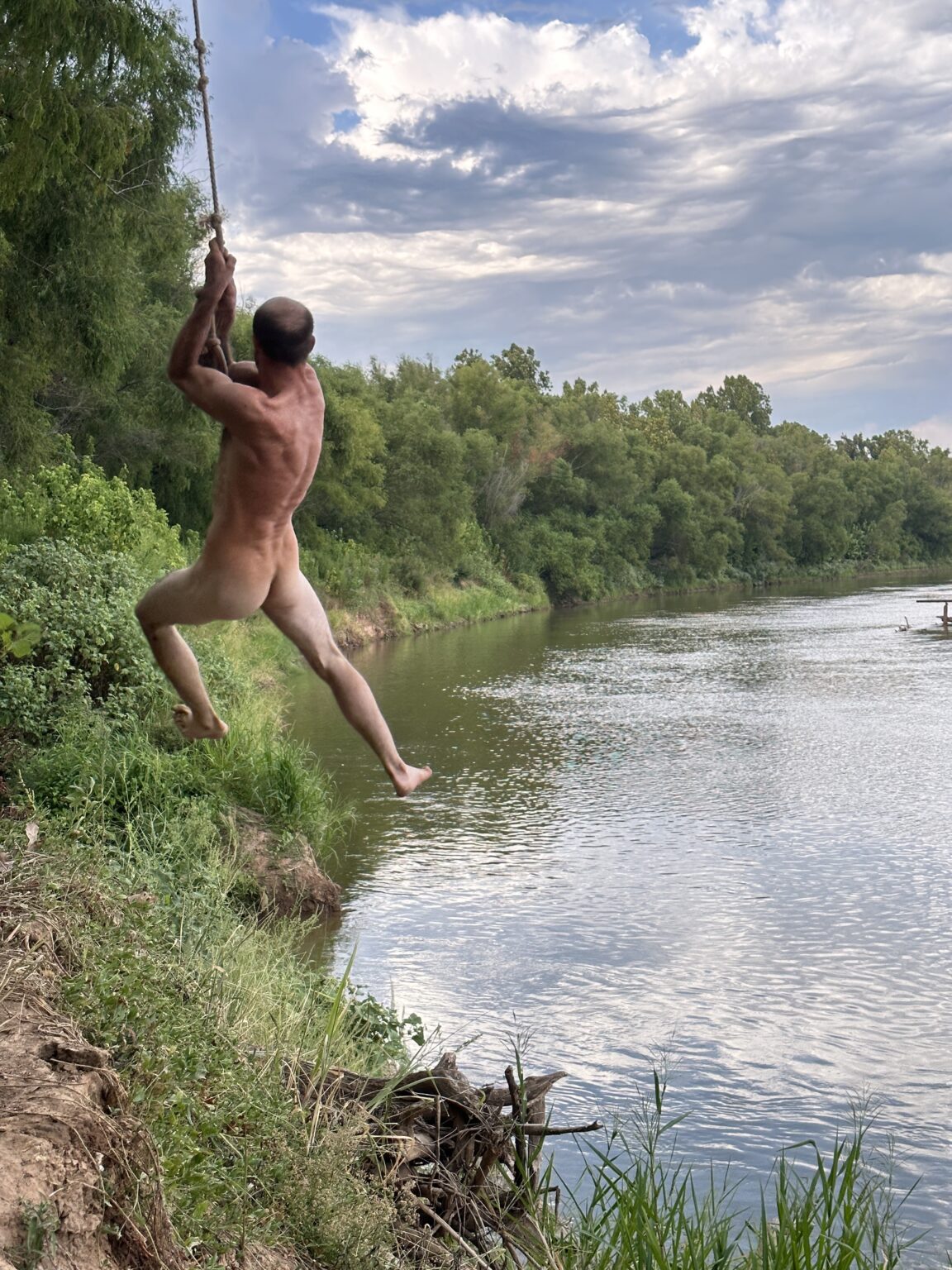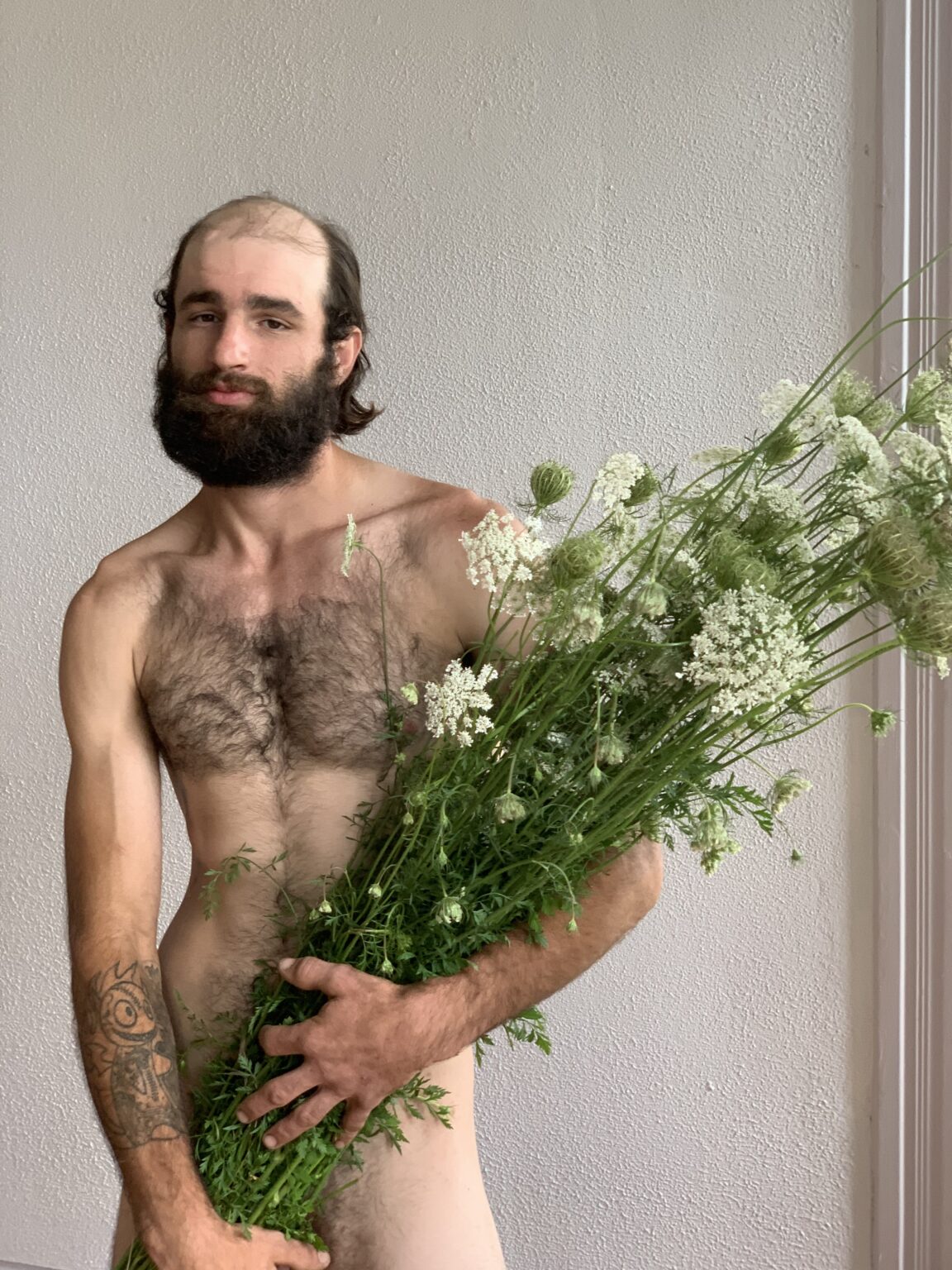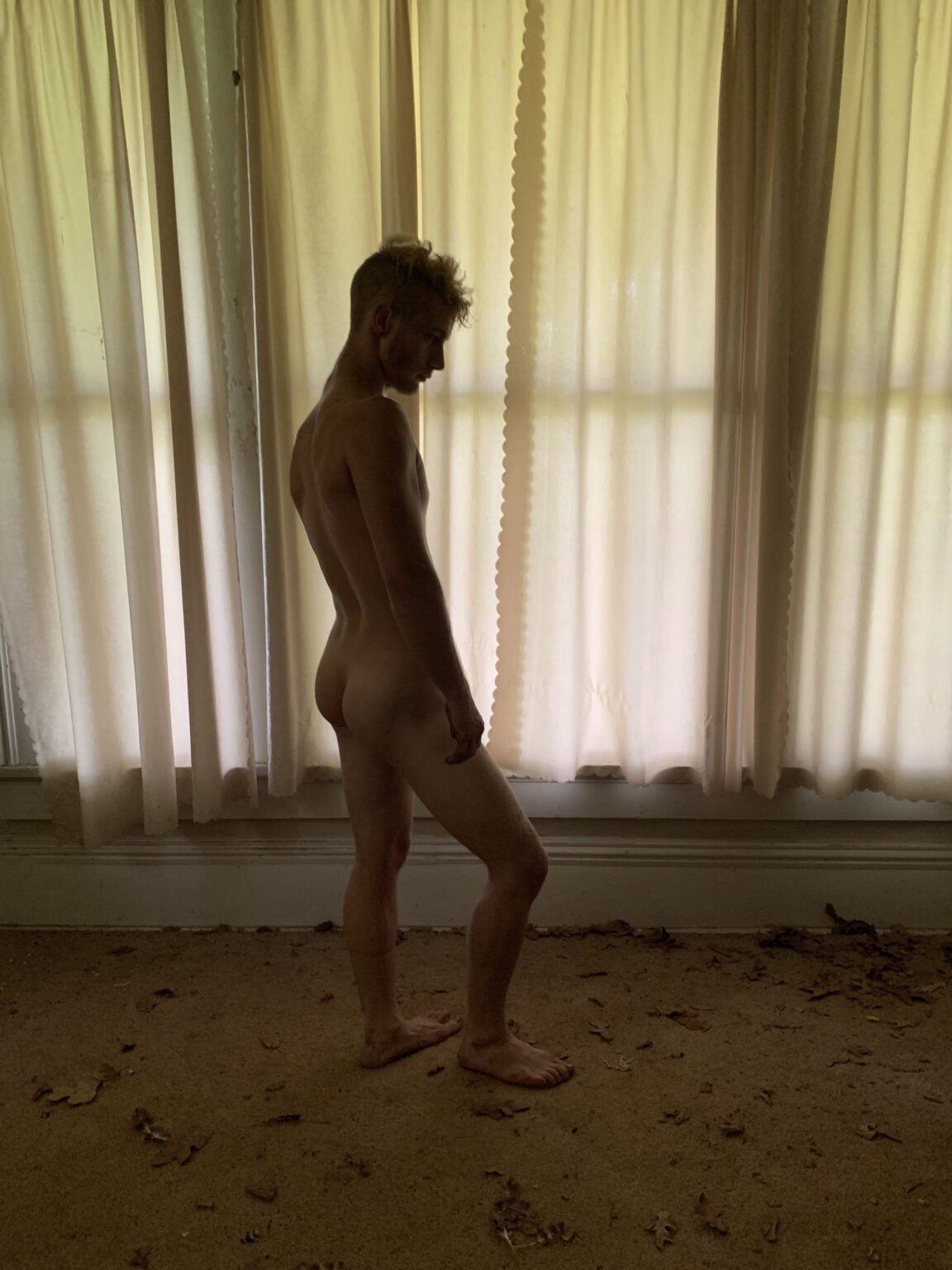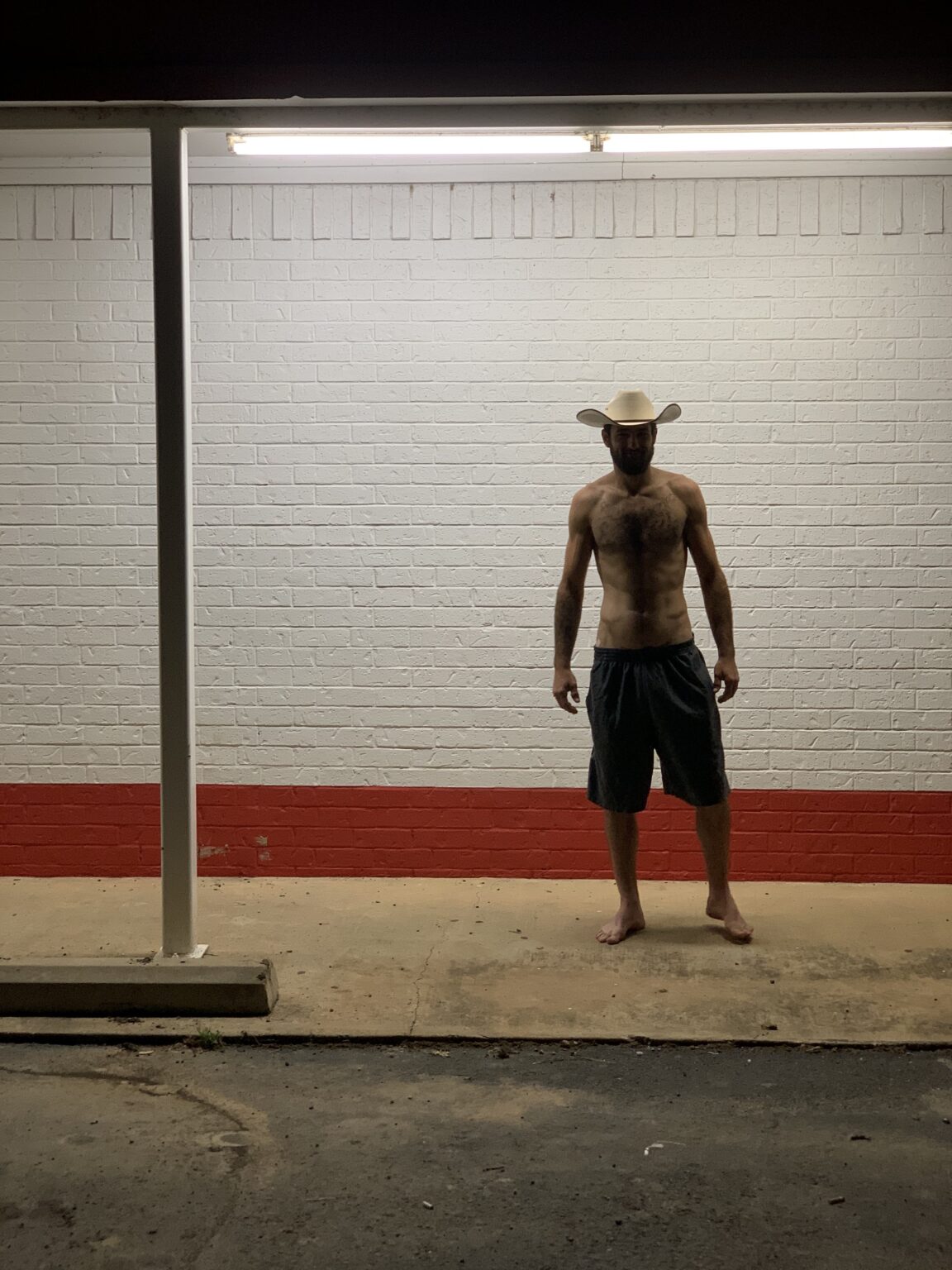
Chivas Clem
A Homo’s Homecoming in Paris, Texas
When artist Chivas Clem moved back to Paris, Texas after more than a decade in NYC, he didn’t have the warmest memories of his rural hometown. As a kid, he sometimes felt like the only gay in the village. But starting in 2016, he started befriending young men in his neighborhood, many of them drifters — the kinds of guys who were stereotyped as bigots and blamed for Donald Trump’s election, when most of them didn’t even have the right to vote. All of them seemed misunderstood, and some of them a little bit gay. His exhibition ‘Shirttail Kin’, now up at Dallas Contemporary, shows a tender and sexy side to these tough, scruffy bros, but it’s no redneck romance. The show’s title is a Southern term for “chosen family”. Sweet!
Evan: What brought you back to Texas?
Chivas: I moved back about 13 years ago after living in New York City for 12 years. I went there for graduate school and did a bunch of things, like run a gallery in my apartment, work at a magazine, make art. But I got kind of burnt out and developed a little bit of a drug problem, so I came home to get sober. There’s a lot of benefits to being here. I can live very cheaply and have a beautiful studio and make work. And I don’t have to go to cocktail parties anymore, which is great.
The dream. What was it like growing up gay in gay Paree?
It was a total fucking misery. I think that’s what this work is about, in a way. When I was a kid, I developed a terrible fear of men and boys that was so bad that I couldn’t go into boys’ locker rooms.
Oh no. Many gays can relate, though.
And so my mother hired this insane therapist who wrote a note to the school that said I couldn’t take boys’ physical education for mental health issues. So they put me in school as a girl.
Interesting that happened in Texas, where so much anti-trans legislation, particularly related to public education, has been passed in the last few years.
Yeah. The governor here is a total monster. Did you know that they’re trying to ban porn? They’ve already successfully banned PornHub. You can’t pull up PornHub if you live in Texas.
That sounds more like Dubai, Texas.
Exactly. So, I suffered a lot from bullying and what have you. And I feel like much of the work is about the ways that fear and desire work together. When I moved back, I felt like I had to revisit this archetype of the redneck, because it was something I had been afraid of and attracted to at the same time for so many years.
That said, your town doesn’t sound so romantic. I guess we can blame Wim Wenders for the misperception.
Wim Wenders loved the name ‘Paris, Texas’, but the movie was shot in West Texas, so it really has nothing to do with this town. My mother is actually a film critic for the local newspaper, and when ‘Paris, Texas’ came out she called Wim Wenders and he sent her a print of the movie to screen as a benefit for the community theater here.
Oh, wow.
We’re in northeast Texas, which is very close to the border of Louisiana, Oklahoma and Arkansas. So it actually feels very Deep South.
I know Dallas is pretty far away, but still how does it feel having the show up in the Lone Star State?
It feels good. I think that the work appeals to people in places like New York and LA and London because it feels more exotic to them, whereas in Dallas, people are maybe more used to the idea of a redneck – or a “deplorable”. I used that term a lot when I started researching this project.
The famous word Hillary Clinton used to describe Trump voters in 2016.
Yeah. Like, what is a “deplorable” supposed to look like? It’s a stereotype of toxic masculinity, among other things.
She got criticized pretty badly for writing off so much of the electorate. What about “rednecks”? Is that a term the guys in your photographs would use for themselves?
Oh, sure. It’s not really a pejorative term down here. It can be, but people also say it with pride sometimes.
Like “queer”?
Yeah, exactly. You can also be a rich redneck or a middle-class redneck. It’s not a class-based thing.
Interesting. I feel like it’s perceived as one in places like New York or LA. The white working-class became such a hot topic of conversation after 2016, at least in center-left media. Are the guys in your photographs Trump voters?
The short answer is that none of them vote. A lot of them are felons and can’t vote. Would they vote for Trump? Maybe. He’s like a toxic father, and that would appeal to a lot of them, certainly. But it’s a moot point. They don’t participate in the political system.
Right. They might not feel like they have a place in it.
There’s a big discrepancy between the way they present themselves, acting tough, and who they really are. They’re all sweet and tender and vulnerable guys, you know?
You can see it in the photographs. Are most of these guys straight? Or gay?
They all identify as straight. Do some of them live outside of that? I think so.
How did you meet them?
When I first moved back, I was with my mother driving downtown, and I saw this guy on the side of the road. He was wearing white jeans, a white shirt, a white hat, and perfect white sneakers. And he was listening to music, and his body was moving with the beat of the music. It was like ‘Saturday Night Fever’. And I said to my mother, “I wanna know who that is.” He ended up being the first person that I ever really took photographs of. We became very close. He’s in jail right now. I talk to him every day. He’s the guy in the photograph holding my grandfather’s rifle.
I always viewed this place as hostile to me. I always felt like an outsider. But lot of the people that I photographed really feel like outsiders in the world.
When I saw that I thought, there’s certainly some level of trust here…
Totally. We became friends. We were hanging out at my parents’ house. Most of these guys are my neighbors. I met a lot of them at this used bookstore nearby, and they’d come hang out at my studio. We became involved. I think that’s why the photographs feel so intimate.
But you didn’t have sex?
Um… (laughs) A couple of them I would say were lovers. But no, not all.
You set out to unpack a stereotype…what surprised you the most?
I was surprised to learn how open they were. How they were really not homophobic. I mean, some of them wore homophobia as a mantle because it’s expected of them. One guy I photographed was very homophobic when I met him, and we ended up becoming lovers.
Classic.
Another thing, and I wouldn’t say this surprised me necessarily, but they’re all people who could have had different lives if they had grown up in a different context. Like, one of them is a brilliant musician who can play all these instruments and writes incredible country music. If he had grown up well off, he would’ve gone to NYU music school and he’d have five albums under his belt. You know what I mean? I still think it’ll happen for him, but there just aren’t those kinds of opportunities here.
Totally. Has making the work changed your relationship to your hometown?
Yeah, I think it has. It’s softened my approach to the place. I always viewed this place as hostile to me. I always felt like an outsider, but a lot of the guys that I photographed really feel like outsiders in the world. A lot of them are like actors without a movie, because they’re so charismatic and also brimming with untold stories.

